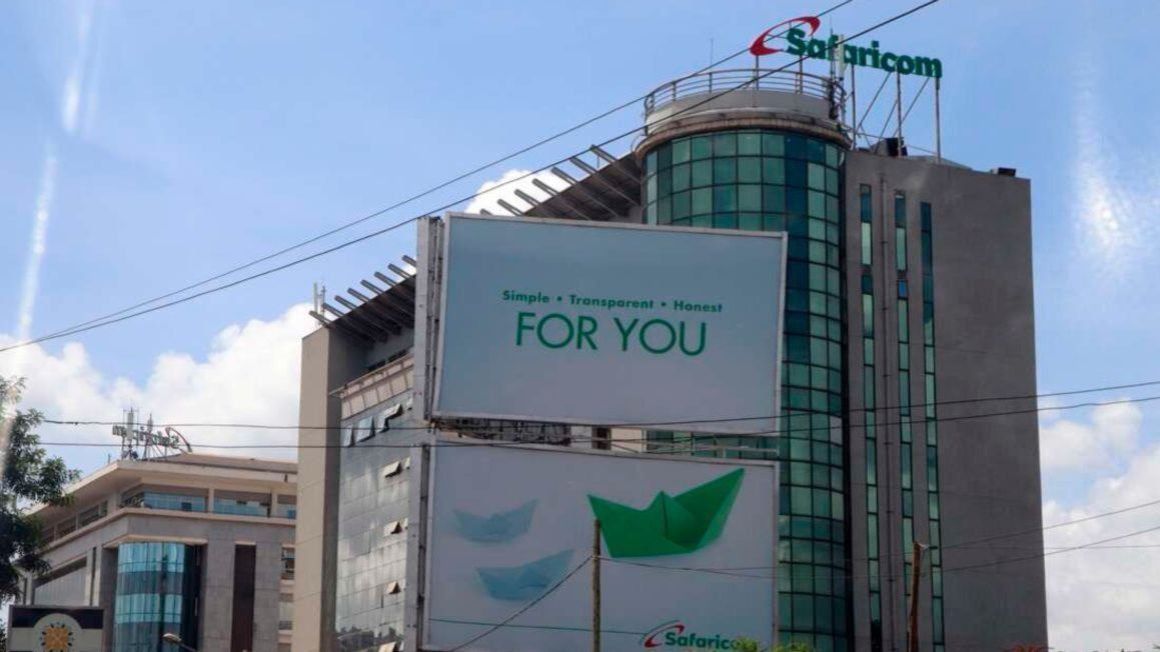
Safaricom PLC headquarters in Westlands, Nairobi. PHOTO | DENNIS ONSONGO | NMG
Local institutional investors have acquired shares worth Sh9.5 billion in Safaricom following the exit of domestic shareholders and foreigners, reversing the government’s objective of boosting Kenyan retail investors’ stake in the country’s most profitable firm.
Regulatory filings with the Capital Markets Authority (CMA) show that local institutional investors including insurance firms and pension schemes bought 340.7 million shares between August 2020 and July 2022.
This followed the sale of 305.4 million shares by foreign fund managers and 37.4 million stocks by domestic investors, who have continued to exit the telecom operator since its listing in 2008.
ALSO READ: New study to guide listing charges for the Nairobi bourse
July regulatory filings show that domestic investors, including citizens of East African countries, now hold 1.51 billion units of the telco’s stock equivalent to a 3.79 percent stake.
Foreign investors including asset managers such as BlackRock, JPMorgan and Fidelity have meanwhile more than doubled their combined stake to 10.17 percent from five percent over the same period.
“Local East African fund managers have picked up from some selling by local individuals as well as the bulk of selling which has been done by foreign institutional investors,” said Eric Musau, a research analyst at Standard Investment Bank (SIB).
Safaricom’s record of paying dividends and the ease of exit from the counter has made the share a favourite with institutional investors and foreigners.
It has become a must-have stock for most institutional investors who nowadays transact trades in the telco’s shares worth billions of shillings per day.
On Friday, for instance, it accounted for 70.9 percent or 4.55 million of the 6.42 shares that exchanged hands at the Nairobi bourse.
Local institutional investors, excluding the Treasury, Vodafone and Vodacom, had an 11.1 percent stake in July worth Sh124.7 billion, up from 6.62 percent in May 2013.
Analysts say the local high-net-worth investors have taken advantage of the falling Safaricom share to buy on the cheap.
The share has dropped from Sh44.65 in August last year to Friday’s closing price of Sh28.05, with their eyes on dividends and capital gains.
Safaricom share accounts for 52 percent of the entire stock market value.
A minimal fall in the Safaricom share price creates an impression that the market is underperforming despite other counters recording gains.
Already, the Capital Markets Authority (CMA) has flagged the dominance of five companies — including Safaricom — in the 65-stock Nairobi bourse as a big risk, with the performance of their shares dictating whether the market goes up or down on any given day.
Retail investors have been net sellers of Safaricom shares since the telco hit the stock market where its share price initially dropped sharply below the IPO offer price of Sh5 to hit a low of Sh2.50.
Nearly 300,000 retail investors exited before and midway through the telco’s long-term stock rally which gained momentum from December 2012. The government allocated local investors 4.8 billion shares or nearly half of the 10 billion units sold in the IPO as a deliberate policy to help them share in the telco’s prosperity.
“Key among the government’s privatisation objectives is the need to broaden the shareholding of State-owned corporations among Kenyans, as well as to deepen the capital market and raise resources for infrastructure development,” the Treasury wrote in Safaricom’s IPO prospectus.
The government raised Sh50 billion from the IPO by selling 10 billion shares equivalent to a 25 percent stake in the telco to individuals, local firms and foreign investors.
The hype surrounding the offer saw retail investors apply for 22.6 billion shares or 4.7 times the 4.8 billion units that they were ultimately allocated.
Retail investors paid a total of Sh24 billion for the shares which would have a current market value of Sh134.6 billion, assuming the investors held on to all the stocks to date.
The investors have, however, sold a total of 3.2 billion shares over the years, leaving them with 1.5 billion units now valued at Sh42 billion.
Besides capital gains, those who sold their shares in the early years have missed out on lucrative dividends that Safaricom has paid.
The telco has so far made cumulative cash distributions of over half a trillion shillings in its life as a publicly-traded firm. Some individual investors, including billionaires, have benefited the most from Safaricom as they have continued to accumulate the company’s shares.
Chirag Minesh Solanki and Kalavati Menesh Solanki are top individual shareholders with a stake worth Sh980 million.
Billionaire investor John Kibunga Kimani now holds 18.1 million shares worth Sh486 million, according to the July records. He started buying the telco’s shares at the IPO when retail investors were required to apply for a minimum of 2,000 shares.
A total of nine local individual investors hold 122.4 million shares valued at Sh3.43 billion.
Safaricom posted a 1.7 percent drop in net profit to Sh67.49 billion in the year to March, the first results that include its Ethiopian operations.
ALSO READ: Brokerage firms choking as bearish run at NSE lingers
The Ethiopia business reported a net loss of Sh4.8 billion in the 10 months ended March, reflecting the startup costs in a period when it did not have revenue.
Safaricom Ethiopia, in which the Kenyan multinational holds a 55.7 percent stake, was issued an operating licence in July 2021.
The stake held by individuals is expected to continue dropping going forward as local and foreign institutional investors gather more assets and deploy them in buying Safaricom and other stocks.
dguguyu@ke.nationmedia.com




No comments :
Post a Comment